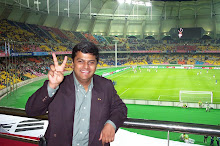Doing something which is ‘not work’ is the conventional definition of a hobby. Many youngsters are spending their time on extreme sports or physical endurance as a hobby. I have heard claims that these activities gave them an opportunity to spend time doing something exclusively for themselves and enjoying suffering and survival. Some people like spending an entire Saturday golfing, fishing, gardening, or attending a game every week. Real Hobby is when it didn’t feel like a choice, it just felt like a natural gravity. Not something you feel like you’re choosing, or scheduling — not a hassle, or something you resent or feel bad about when you don’t do it.
Most hobbies are built in naturally as a part of childhood. The truth is, it’s really hard to start a hobby as an adult — it feels unnatural, forced, or performative. But then Childhood hobbies require a lot of dedication and effort from kids as well as Parents. I spoke to the parents of wonderkid Sarah Girach. Sarah has competed in inline speed skating events at the US national level for the last 6 years and won many national medals with awards from the state governor and local organizations as well as got 9th National US ranking. She started skating in India at the age of 7, for school. Then, when her family moved to the US, she first did it for fun and later was invited to join a competitive speed skating team. She works very hard to keep up with her training regimen each day. She trains six days a week: Monday, Friday, and Saturday for ice speed skating and Wednesday and Sunday for in-line speed skating. Tuesday is for workouts that help her focus on her muscles. Every practice is 3-4 hours. From a parenting perspective, there is a time commitment. Also, they need to spend on skating equipment, wheels, team uniforms, coaches’ fees, ice fees, travel to competitions that require a hotel, food, and sometimes flight tickets and rental cars. Then comes hobby-study balance: as Studies is "the" most important focus for her as a child: more important than the hobby of skating. Kids these days have to strive hard for success in hobbies and excel in them. These hobbies can help even at later ages of their lives as in the case of my batch mate Arun Chillara, who has an IIT –IIM background. He recently published well acclaimed Music Album: Tu Hai Sahi. He has been a professional musician for the last few years with a large number of ad jingles, film scores, songs, etc. He pursued his hobby as a profession. He is also engaged on the business & management side as well, working with startups and has helped many over the last few years. He craved to be a professional musician throughout his childhood but could not pursue it. He followed his dream. He spends a lot of time on his passion. Melody and lyrics are just the start, then he has to think about production, distribution, etc. But then he turned his hobby into a revenue-generating stream as the music industry is thriving once again, thanks to streaming platforms and youtube. That has happened in the last few years. His first album called Flying High was an independent release in 2014. He was working full time those days and learned that the music industry was broken only after finishing the songs. But he had the initial body of work that helped him get into the commercial side of the industry. ‘Tu Hai Sahi’ has been in the works for a while along with many other compositions that he has working on. These protagonists have put in serious efforts to follow their hobbies as a child and professionals respectively.
But these days we end up ‘buying’ a hobby. Peer Pressure, social media, and new economic models are the reasons for that. There is peer pressure generated by reading lifestyle influencers about what to do in leisure time: you should devote yourself to self-care, but also spend more time on your children and partner; you should liberate yourself from the need to monetize your hobby but also have enough money to do the hobby in the first place. you should “embrace laziness,” “evaluate your career,” “have a family meal,” “fix your finances,” “do that one thing you’ve been putting off,” AND/OR “do nothing,” AND THEN tweet that influencer about what you did over the weekend!
The new economy has new uncertainties and opportunities. We’re constantly being told to have side hustles—masked as hobbies—in order to have multiple streams of income in today’s gig economy. It can be hard to foster new skills that have nothing to do with a pay cheque.
Then there are social media platforms. What does it actually mean to have a hobby, especially at a time when we’re living so much of our lives online? Our personal brands require continued upkeep and innovation at a great emotional expense. Social Media’s focus has always been on display the version of yourself you want others to see. Simply put, your Social media page has become a resume for how interesting you are.
It’s weird to think of yourself as privileged to know what you like. It’s certainly privileged to be able to know it and have the means — the time, the money, the wherewithal, the health — to pursue it. But one of the saddest predicaments of the current millennial moment is feeling desperate for something that isn’t work but having no clue how to figure out what else there is. Serious leisure is the systematic pursuit of activity—like rock climbing or singing—that usually requires a “special skill.” In other words, we need to put serious effort into a hobby in order to reap its rewards over time. Just like we dedicate our time and energy toward a career, committing ourselves to a “serious leisure” activity is one of the keys to achieving a fulfilling life according to few.



No comments:
Post a Comment